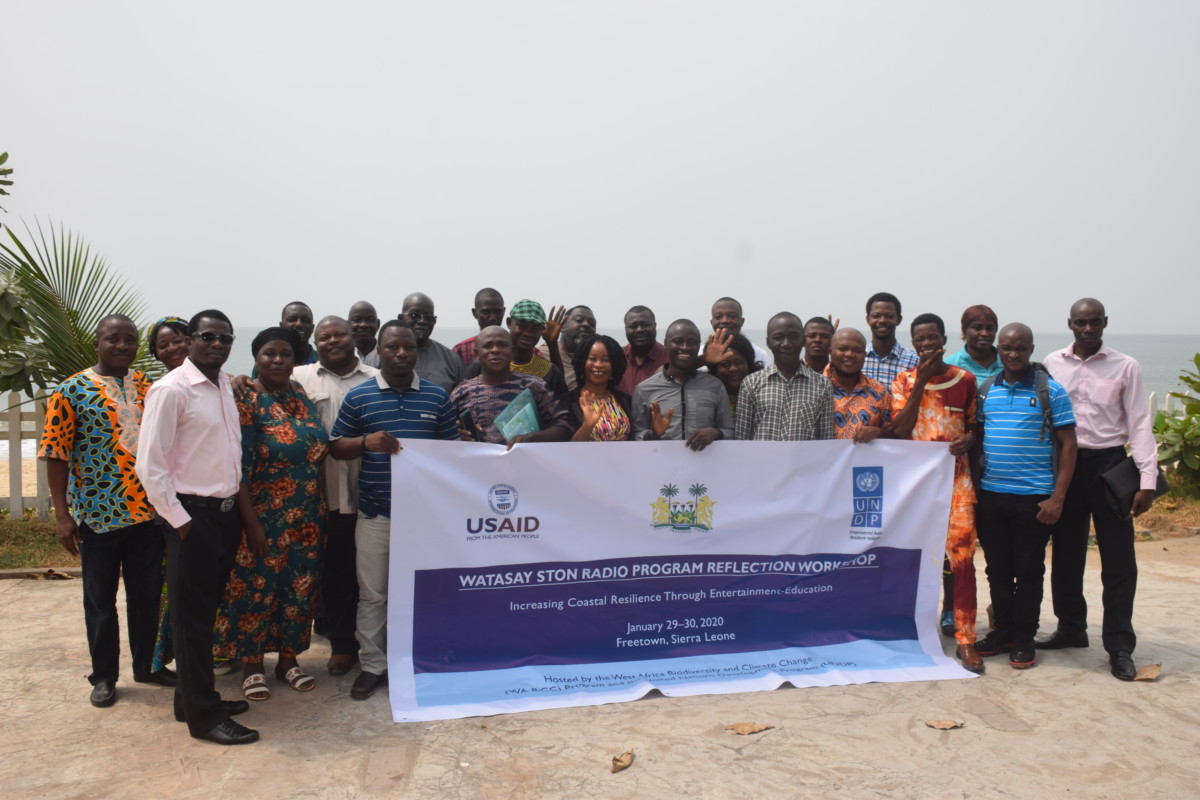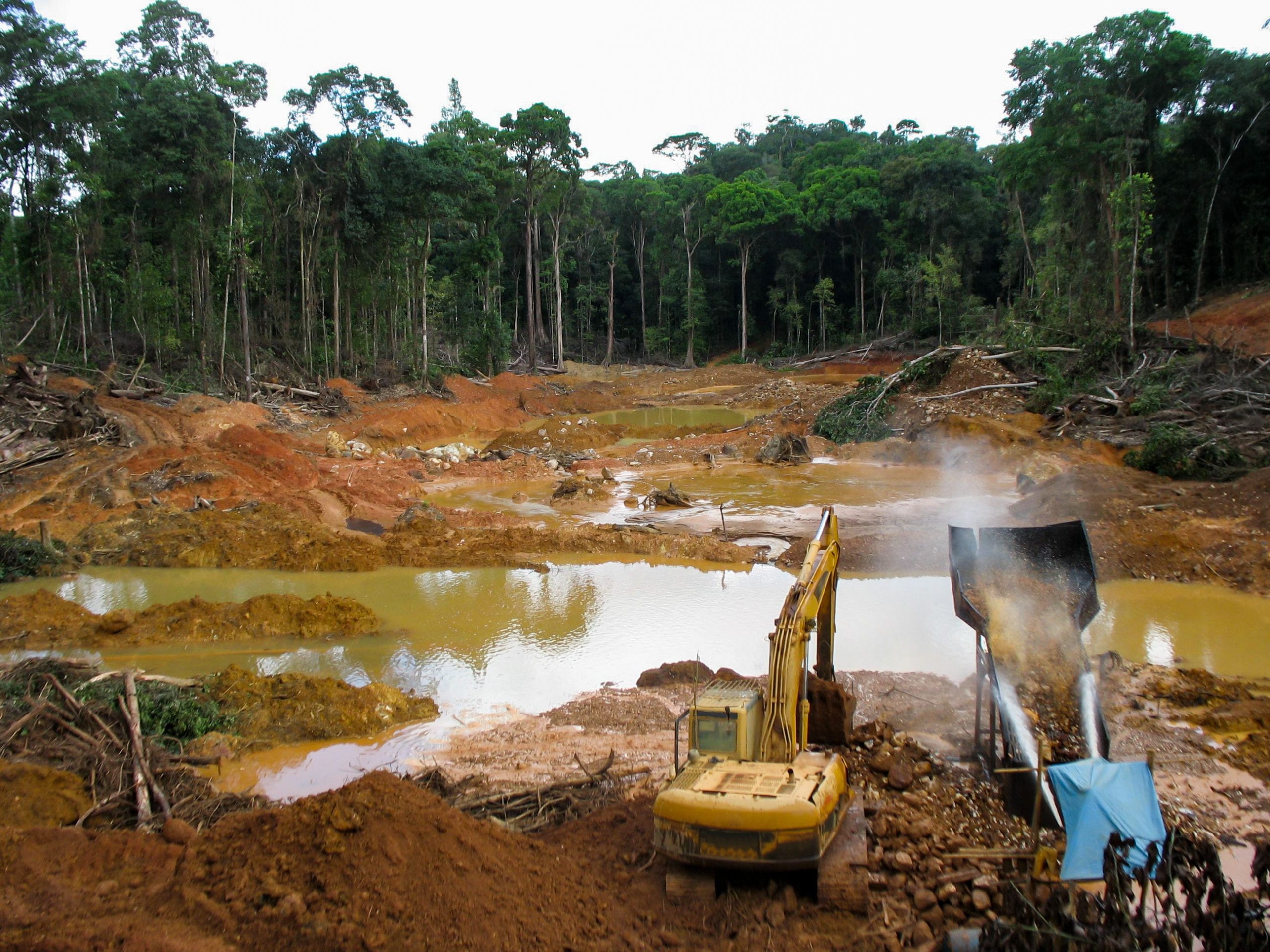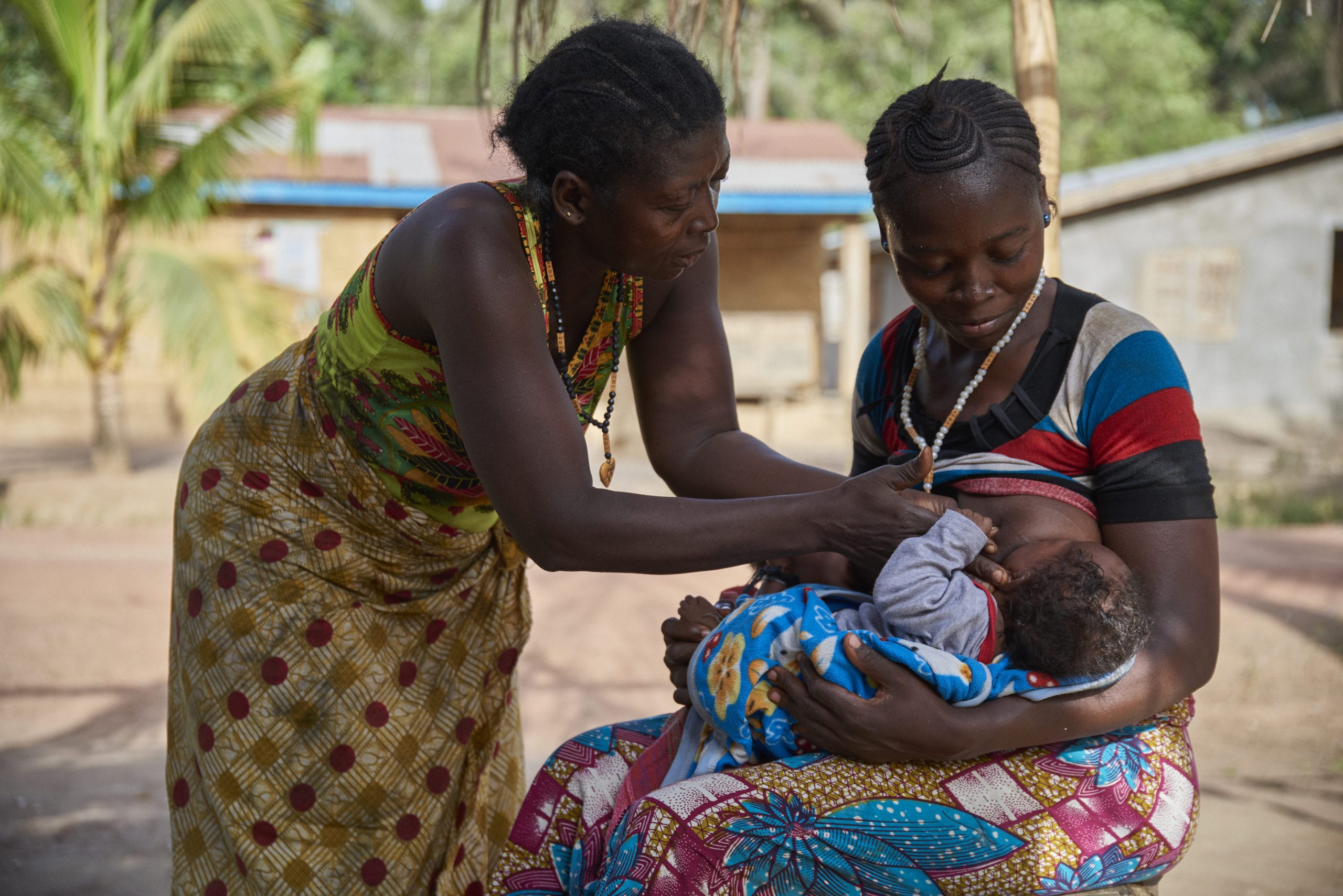Promotional graphic from Watasay Ston.
Radio dramas are a part of Sierra Leone’s rich culture; hence, it is no surprise that “Watasay Ston,” a new radio drama series and form of entertainment-education, has quickly emerged as one of the most popular in the country. One reason behind its success is that all stakeholders, including the government, donors, communities, drama producers and radio stations, have taken ownership of this series and continue to learn from the process to improve the messages and increase listenership.
The journey started with a radio drama design workshop organized in October 2018 by the USAID-funded West Africa Biodiversity and Climate Change (WA BiCC) Program. In Port Loko, Sierra Leone, stakeholders from Sierra Leone’s coastal communities, government, and media entities came together to develop the blueprint for what would become the “Watasay Ston” radio drama and call-in show series. The 24-episode series was created by WA BiCC to increase the knowledge of people living in Sierra Leone’s coastal communities on sustainable natural resource management practices in order to build their resilience to climate change. It was produced in English, Krio, Mende, and Temne to ensure it could be enjoyed by a large number of Sierra Leone’s diverse population.
Bintu Moseray, a Program Manager at the United Nations Development Program (UNDP) in Sierra Leone, was among the participants at the design workshop. She was purposely invited by Zebedee Njisuh, the WA BiCC Coastal Landscape Manager because he saw an opportunity. Moseray had just launched a new project to strengthen the ability of coastal communities to systemically manage climate change risks and impacts in the same coastal landscape where WA BiCC was working. During the design workshop, Moseray was struck by the glaring opportunity for a partnership between WA BiCC and UNDP, as the two organizations share similar program objectives, especially with regard to leveraging communications products to change behavior. She immediately called her bosses at UNDP and got clearance to fund Season 2 of the radio program since WA BiCC was funding Season 1.
Season 1 of the series aired on four radio stations (Africa Young Voices Radio, the Sierra Leone Broadcasting Corporation, Radio Peninsula-Tombo and Radio Bontico in Bonthe) from July 2019 to January 2020. During this period, a monitoring and evaluation (M&E) study was conducted in 24 coastal communities in which the show was aired to measure the listenership of the program and the effectiveness of the messages.
At the end of Season 1, it was clear to WA BiCC and UNDP that all stakeholders needed to come together to reflect on the processes and studies to see what had been learned. Thus, a reflection workshop was jointly organized January 29–30 by WA BiCC and UNDP to capture the stakeholders’ experiences, discuss challenges and best practices, and lay the pathway forward for the production, broadcast, and monitoring of Season 2. The 39 participants at the reflection workshop included WA BiCC and UNDP staff; a representative from the National Protected Areas Authority; presenters and managers from the four radio stations that aired the program; WA BiCC’s community animators; UNDP’s community focal persons; the Mayor of Bonthe; and staff from Premier Media Group, the company contracted by WA BiCC and UNDP to produce the radio drama.

The reflection workshop group photo.
During the reflection workshop, the M&E presentation revealed that 17 out of 24 communities listened to the radio drama and call-in show, and listeners included women and men of all ages. Community members said the messages influenced them to enforce by-laws surrounding conservation, do selective cutting of mangroves and plant mangroves—all keys to building coastal resilience to climate change. They also said the radio program has generated discussions around the negative effects of cutting mangroves near communities, the danger of flooding, and the construction of embankments to protect the communities from coastal erosion. A total of 287 call-ins (78% males and 22% females) were made within the first three months of airing on the four radio stations. These callers included fishermen, farmers, fish sellers, community leaders, and students.
After seeing WA BiCC’s M&E presentation on Season 1, UNDP announced that they would revisit their M&E framework and map out their strategy to include the M&E of the listenership and effectiveness of Season 2.
In addition to the increase in knowledge among coastal community members, it was noted during the reflection workshop that the production and broadcast of the radio drama series created employment for Sierra Leoneans, including radio drama writers, actors, editors, radio station staff, and community animators. It also benefited those involved in different ways. The drama presenter who also served as the Manager of AYV Radio, Michael Samuels, said, “Because of the WA BiCC program, I have become so popular. So many people call me to talk about ‘Watasay Ston.’ The program has added value to our programming. In light of this, we volunteer to play Season 1 again. ‘Watasay Ston’ is my baby.” A representative of Radio Peninsula-Tombo, Edward Batilo, also announced that his radio station will rebroadcast Season 1 free of charge.
During the reflection workshop, Bintu Moseray said, “It has been a learning process—very insightful. Some of the important things we discussed here, I wouldn’t have thought about on my own. It’s not only for WA BiCC’s learning but UNDP and the whole Republic of Sierra Leone. We have gained a lot from this process.”
As a learning program, WA BiCC has discovered that people truly appreciate a radio drama series with all the right elements, including everyday reality, humor, and suspense. What keeps them tuning in is also “larger than life” characters, such as Marie Dembad, who turned out to be the most popular character. She was a fish seller who used mangrove wood to smoke fish and later adopted more sustainable practices such as using improved fish smoking systems.
Even as WA BiCC passes on this successful series and the lessons learned from it to UNDP, the story is still far from over. Recently, Wetlands International, a global organization implementing a new program in the Sierra Leone coastal landscape and across West Africa, expressed interest in funding Season 3 of “Watasay Ston.” It looks like, in sticking to its meaning, “Unmovable Rock,” “Watasay Ston” may remain on air for years to come.




Recent Comments